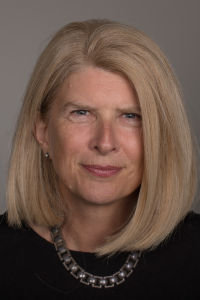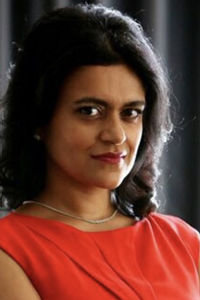How I became more productive in 2018

Roula Khalaf, Editor of the FT, selects her favourite stories in this weekly newsletter.
Are you aiming to achieve more in 2019? Here are some tried and tested ideas to get you started. Or perhaps you have your own productivity hacks to recommend. Tell us in the comments below.
Andrew Hill, FT management editor

I spent part of 2018 on sabbatical, most of which I spent at home completing a book. I do not really like using headphones while writing — if you can’t hear what is going on around you, how will you ever learn anything useful? — and I find music distracting. Occasionally though, I found listening to white noise helped me concentrate for prolonged stretches and I have now imported that habit to the office for occasional use on deadline.
There is little new about white noise in the workplace. As far as I can tell, the Financial Times first started writing about it as a way of offsetting office distractions in 1985. Tinnitus sufferers have been seeking relief in audio playback of ocean waves and other soothing sounds since well before that.
The difference today is the sheer variety of options available online. Disconcertingly, some users heap praise on them as a cure for insomnia, while others applaud them as an aid to concentration, which seems contradictory. YouTube offers a wide, and, it has to be said, sometimes bizarre selection of white noise generators. I have tried “galactic star cruiser”, “private jet” and even “washing machine spin cycle”, but “mountain river water” is, appropriately enough, the soundtrack that is most effective at putting me in the flow.
Pilita Clark, FT columnist

I stumbled on a big productivity boost this year after going to a talk on working life one wintry afternoon in London, where a professor asked people to consider a disturbingly familiar scene.
Imagine you have just arrived at work on Monday morning, he said, primed to get stuck into a complicated bit of work. You turn off your phone, close down Twitter, ignore all emails and start typing. The first sentence is not bad. The second is better. You have just started on the third when a shadow falls over your desk. “Hello!” beams an office colleague. “Good weekend?”
In an instant, all hope of achieving the focused, deep thought needed for so much daily work has been lost.
Having worked in noisy newsrooms all my life, I used to think I was immune to work distractions, a lot of which I cause myself. But listening to the professor, I decided to see what would happen if I worked in a quiet place without interruption.
This proved tricky. My open plan office, typically, is virtually bereft of such spots. Staying home is hopeless: my apartment is small and there is a noisy Australian man in it (my other half).
Then I had a thought. A large airy café had just opened near my office. I discovered you could sit in it for hours, even if you only bought one latte. The Wi-Fi was OK. There were plenty of power points and it never got too crowded or noisy.
I took my laptop over one afternoon and got more work done in one hour than I had in the previous three back at the office. Since then I have been hooked. I head there every other week or so, whenever I need to finish something requiring a lot of concentrated, uninterrupted thinking. I would tell you where it is but I am afraid that, if I did, I might never find another empty seat there again.
Robin Sharma, leadership adviser and author of The 5AM Club

This year fasting has been very helpful. I had the deadline for my book, so it has been intense. When fasting, I do not eat until 3pm or 4pm. I found it maximised my energy, and skipping breakfast and lunch saved both time and money on grocery bills. Fasting battle-proofs your mindset.
I have also tried to optimise my rest routines, such as taking an Epsom salt bath before I go to sleep and staying off social media — you should not check any screens for an hour before you go to sleep.
I am pretty serious about bio hacking, so looking at all the supplementation, physical and mental techniques to extend life and boost cognitive capacity. Fitness is important, so in the coming year I want to take it to a whole new level.
I also want to continue to be kind. And as many of us have become sleep-deprived automatons addicted to white screens, I am going to be kind to as many people as possible.
Scott Galit, chief executive, Payoneer

Running a global business, I pretty much always feel that I am behind and being inefficient. There are a few things I did in 2018 to try to be more effective, more efficient and to maintain (or maybe restore) some balance in my life.
I decided to set one night each week as a recurring Asia call night, when I will co-ordinate as many calls with Asia as I reasonably can. It does not mean that I do not have calls other mornings or nights, but it makes things more predictable for my colleagues, and for my family.
I also recommitted myself to going to the gym each morning, even while on the road. I find it is the best way to clear my mind, get an energy boost at the start of the day and keep myself healthy — even with all the travel and long hours I work.
Jamie Susskind, barrister and author of Future Politics

When I began work on my book, I tried to bring some of the pressure of my life as a barrister to the process of authorship. Otherwise, I feared deep down that I would never get it done.
I squirrelled myself away at a US university where I had a fellowship but no teaching responsibilities. Before I left, I told everyone — publisher, agent, friends, colleagues, Twitter — that I would finish the book in a year. I did this to ratchet up the pressure on my future self, not because I actually thought I would do it. (In reality, of course, no one other than my long-suffering editor would have noticed if I was late in submitting.)
My greatest ally was self-induced jet lag: I changed my rhythm so that I could not help but wake nice and early. Each morning I would brew a cauldron of English tea and start work. I set myself a daily target of 1,000 words even if that meant I was unhappy with the quality of the first draft. (It was usually horrible.)
Only after finishing each chapter would I start to trim, tinker and polish, which became my favourite part of the process.
I managed to finish in a year, though only after bribing my sister to help me with the footnotes in the final week.
Tara Swart, neuroscientist and senior lecturer at MIT Sloan School of Management

I have over the years developed a regular mindfulness practice of 12 minutes a day, based on resilience training research conducted by psychologist Amishi Jha on the US Marines.
In 2018, I created a vision board of my goals and aspirations for the year: a collage created by hand that has metaphorical images of what success means to you. I use this tool in my executive advisory business and have found it to be very effective. It accesses the selective filtering and value tagging systems of the brain that help us notice and seize opportunities that may otherwise pass us by.
In 2019, I plan to improve my productivity by returning to the practice of journaling to raise behaviour patterns in my consciousness and hone my intuition. The act of writing down issues and reading them over several times a year allows us to see what’s holding us back and focus on our goals.
Niro Sivanathan, associate professor of Organisational Behaviour, London Business School

Being a scholar and scientist driven by data, the really big one for me is trying to work on not multitasking.
Although one can feel more productive and more efficient while multitasking, a lot of the science suggests our brains are really just not very good, or even not capable, of multitasking. There is a mental “switching cost” when you move between tasks, your brain splits, or allocates only partial resources to the various tasks.
I used to be the kind of person who would have 25 browser windows open, and I think that is very common. Now I try to focus on just one tab.
When I write, I try to switch off emails and any other sort of information inflow so that I control the information, rather than the information controlling me.
I cannot say I always succeed — old habits die hard — but trying has certainly helped. It is a huge benefit to focus just on that one word document with nothing else to distract me.
Stuart Templeton, UK head, Slack

I have always done exercise but sometimes I might stop. So I bought a static bike for my house. This has made a huge difference because it means any wind or rain outside is not an issue.
So three times a week, I religiously get on my bike at 6am and stay on it until 7am. It really kick starts the day.
The other thing is that I do not professionally or privately check my phone after 9pm. And this is a culture cultivated at Slack [a workplace messaging tool]: you work hard and then you go home.
Next year my intention is to make sure that every other Friday I do not schedule any calls and meetings. This will allow me to tackle the meaty things in the morning, and do the things that take a little less brain power, such as checking emails and Slack messages, in the afternoon.
I am also going to try to delegate more. That is something I still need to improve on.
Our summer of work hacks
During the summer months, FT journalists tried out a range of activities that claim to help us become more productive — from the pomodoro method of working in 25-minute chunks of time to a five-hour working day. Read our verdicts here.
Comments